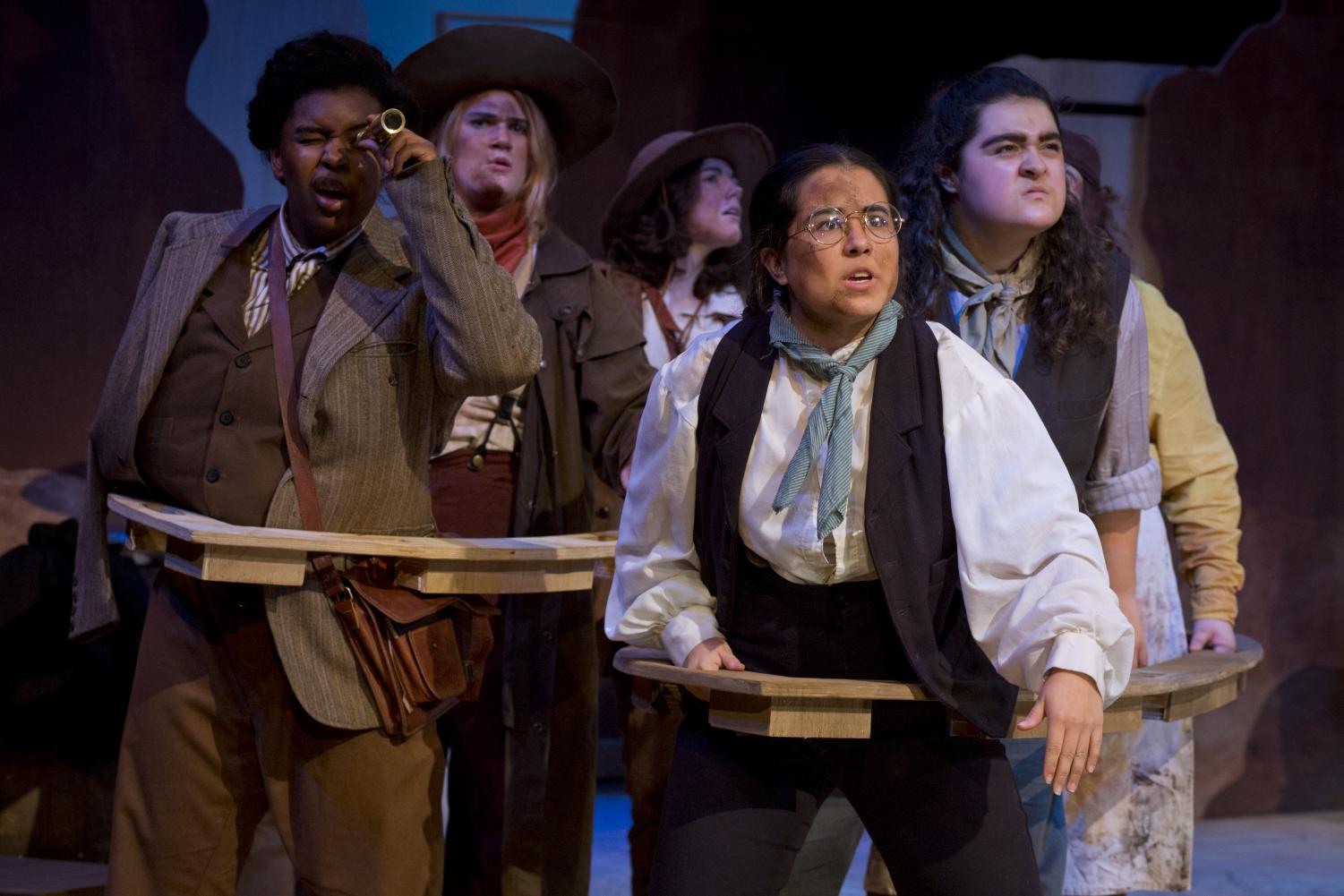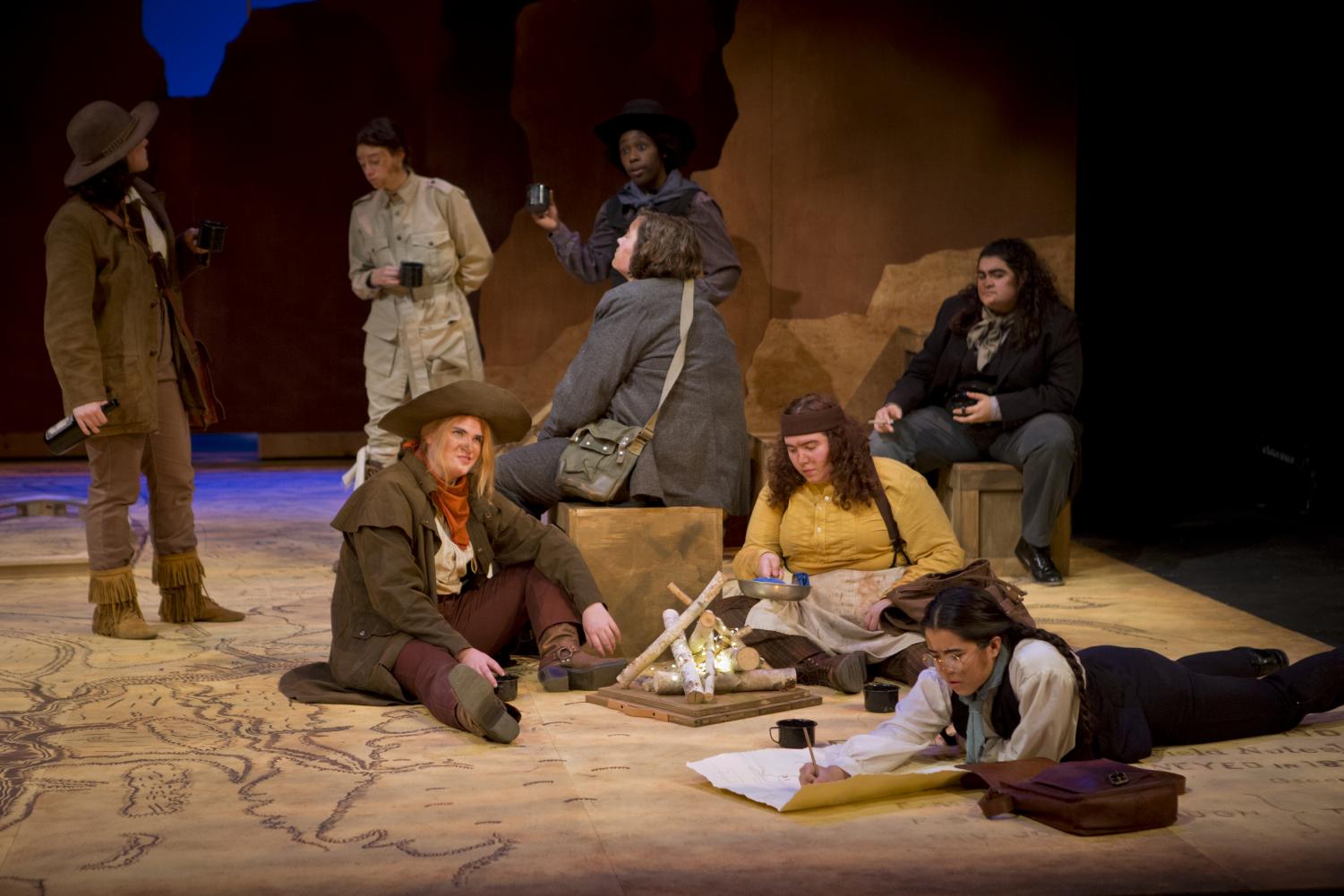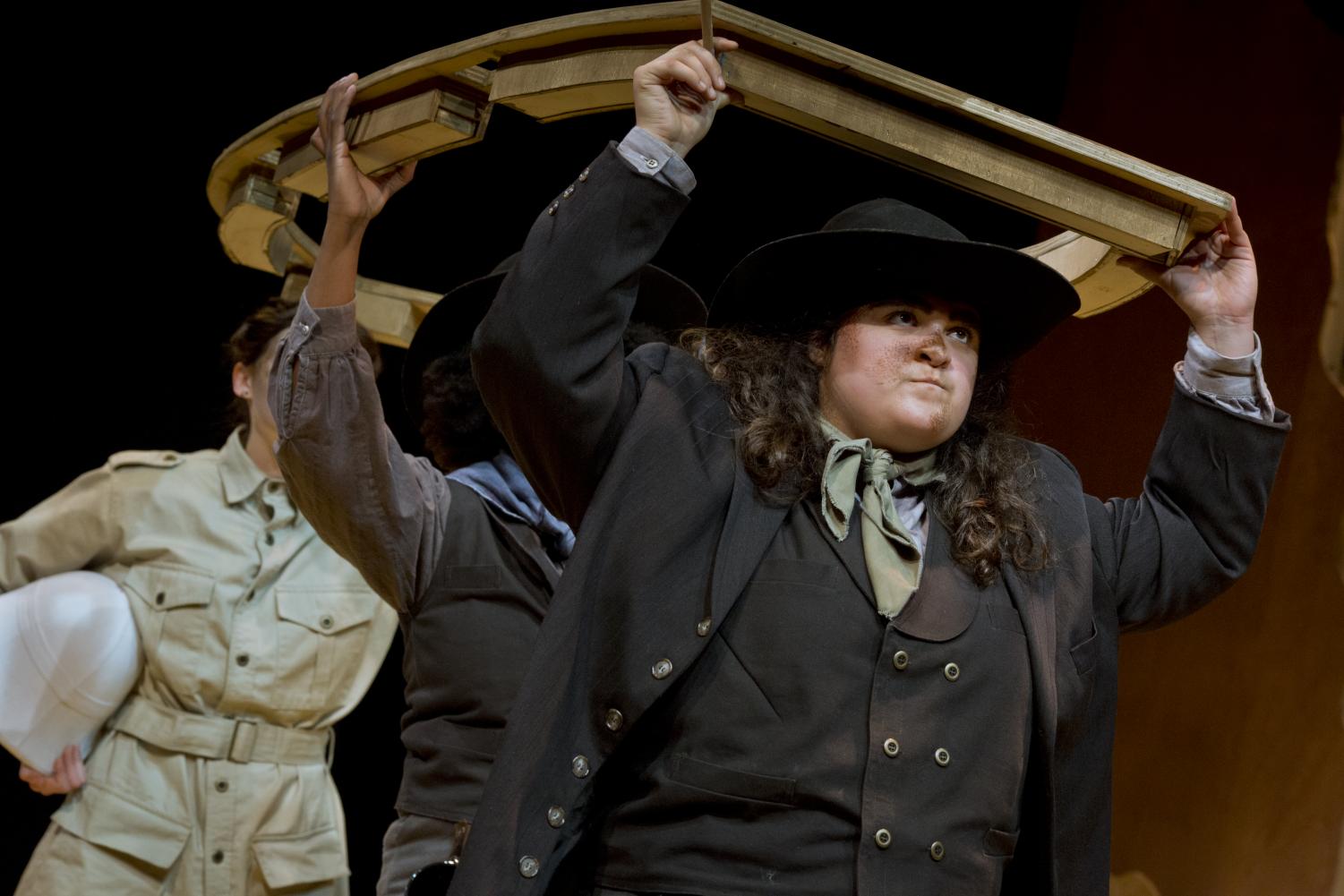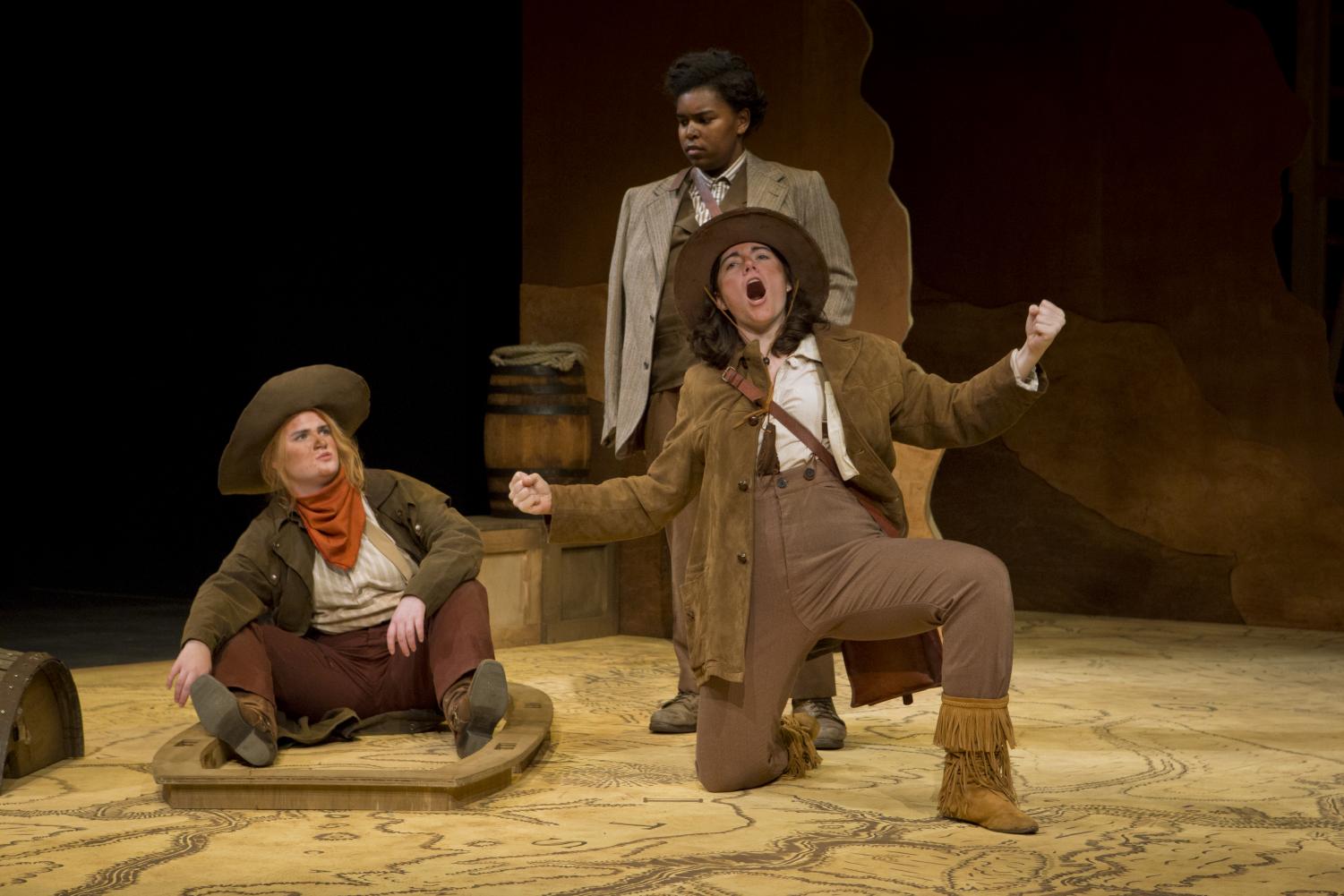Hilarious take on history with deeper message
“Men On Boats” reimagines Western expansion
November 21, 2019

The crew of John Wesley Powell’s (played by Chloe Newton) expedition across the Green and Colorado Rivers scream, shout and yell as they go down the powerful river.
Then, a crew member, George Young Bradley (played by Abigail Anderson), plunges overboard into the sea.
The crew rushes together throwing ropes into the river to try to save their fellow crewmate.
This scene, like many scenes of the play is brilliantly overexaggerated. While the exaggeration raised the intensity, it also produced humor.
This is the beauty of the Seattle Pacific University Theatre Department’s Fall Main Stage production, “Men On Boats,” written by Jacyln Backhouse and directed by Carol Roscoe, which debuted Thursday Nov. 14.

It chronicles the journey of ten men travelling through the frontier and the obstacles the crew comes in contact with — like waterfalls, spats among group members and men falling overboard.
But, despite the male-dominated cast of characters, all the characters are played by women.
“Men On Boats” also does not shy away from commentary about how the men were traversing land already occupied by indigenous people.
William Dunn’s (played by Abigail Ayulo) experiences best display how the play goes about creating this deeper commentary.
Near the middle of the play, Dunn argues with Powell over the fact that the journey has become too dangerous and that there have been too many close calls with death.
There had already been multiple people falling overboard, including Dunn himself.
Dunn, despite the crew’s opposition, decides that he has no other option but to leave the crew.
Through this conflict it becomes clear that the strain the journey put on the crew was too much for some.

Dunn’s story also demonstrates how history has a glorified picture of what it was like to explore the uncharted Western frontier. In reality, the true experience of many explorers was one of terror and dread.
While Dunn announcing his intention to leave the crew was a heart wrenching scene, it also serves as an important segway to the social commentary evident in the play.
By crossing the frontier they were interfering with native tribes.
Three members of the crew including Powell, Dunn and John Colton Sumner (played by Sophie Saxton) in order to provide Dunn safe passage, decide to visit a tribe of indigenous people to provide Dunn the resources he needs to safely travel to a settlement.
Two members of a tribe come in contact with the party and, while being helpful, they come off as cold towards the explorers.
They make a variety of sly remarks relating to how the explorers could not take their goods but could feel free to take the crops belonging to a nearby settler, although they warned the men that the land is not well kept.
These subtle comments were comedic, but underlying this was a reminder that the indigenous people were used to men like these explorers taking advantage of the tribe and their resources.

“Men on Boats” did not shy away from letting it be known that the so called “Manifest Destiny” that led to exploration of the Western frontier was not just a story of the struggle of a crew, but rather, a story of how history sometimes doesn’t take into account the plight of groups like the indigenous people who suffered from the triumphs of explorers.
It is through this determination to set the record straight and provide a different perspective to the traditional narrative that “Men on Boats” provides a powerful message that SPU students should consider when reflecting on history outside of the theatre’s halls.
























































































